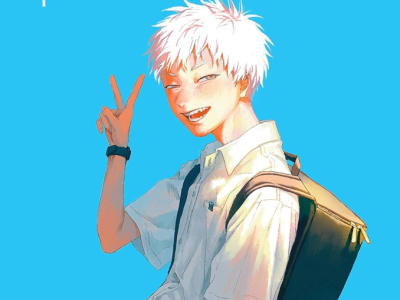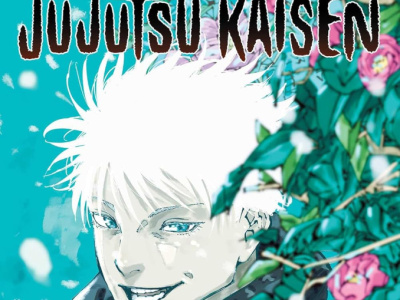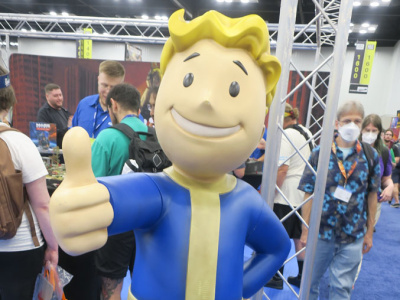As the coronavirus crisis has taken hold, CEO Steve Geppi of Geppi Family Enterprises, the company that owns Diamond Comic Distributors, Alliance Game Distributors, Diamond Book Distributors, and numerous other companies, has suddenly become more visible than he’s been in decades. We caught up with Geppi on Monday, May 11, for a wide-ranging interview about the current situation and his plans for the future. The interview was edited for length and clarity.
In Part 3 of this five-part interview, below, we talk about how GFE companies will handle the product caught in the pipeline between order and shipment during the shutdown, and Diamond’s new competitive landscape.
In Part 1, we asked about key decisions made at the end of March: to shut down most functions at Diamond and Alliance, and to delay payments to vendors. In Part 2, we talked about the surprising impact on Diamond’s relationship with DC Comics, its second largest supplier. In Part 4, we talked about what will happen if there’s rolling chaos, with regional shutdowns and openings across the country, and plans for Free Comic Book Day. And in Part 5, we talked about the reorganization of Geppi’s companies into Geppi Family Enterprises, his plans for the future of his companies, and for his ownership of them.
ICv2: Let's look ahead. You've got this big pipeline of product that was coming in late March. There's product that you've received that you haven't shipped. There's product that, when your warehouses were closed, got held up somewhere in transit or sent back to the printers. There's product sitting at printers or at manufacturing facilities. How are you going to handle that big backlog of product and get it out to retailers in a way that's not crushing them in the first couple weeks with stuff they can't pay for?
Steve Geppi: Our goal is not to shove a square thing into a round hole. In fact, that was the rationale behind stopping shipping in the beginning, not shipping a product they can't pay for, which is silly. Similarly, in a different vein, we don't want to ship them more product than they can pay for. Thankfully, Marvel and DC, or the biggest part of their invoicing, for the most part, are staggering the shipments.
There will be a little bit of a glut, for lack of a better word. (That's not a good word, because it's really not quite a glut. Even over the period of three weeks that we didn't ship DC and they were shipped by the other two distributors, it's a grand total of five, seven, and two, 14 titles, depending on what kind of an account you are.) We're going to spoon‑feed them as retailers through our survey want it: staggered.
It's a tradeoff. Nobody wants to be late on the books. Technically, the Diamond accounts are already late on three weeks’ worth of DC, 14 titles. When we start shipping again, we'd love to give them all of it if they want it and they say they can afford it, but we don't want to force them in any way to take on more than they can.
An account says, "Hey can you work with me on the invoice?" or, "Can you stagger the shipment?" I think more often they would rather have the books and the payments staggered than they would have the shipments staggered and not be on equal ground with some other retailer who can afford it.
That's the plan. It's a plan in progress. It's going to be different for different people. If you're in California, you can't open. I'm hearing things from guys like Brian Hibbs [of Comix Experience in San Francisco] that he might not be open until June or July. God knows, I hope not.
There's a big difference between periodicals and graphic novels. Graphic novels are more evergreen. The periodicals have more of a time bomb issue to them, so I would imagine a retailer in California might choose to cover their subscribers who say they still want them and won't get them somewhere else in the interim, or do a survey with their people and find out, tailor‑made, of exactly how many they know they can sell and say, "The hell with the newsstand sales. I'll pick up when the fresher books come in, and I'm open and running."
We did have a situation where, in the case of the 4/1 group, there were graphic novels (DC graphic novels, I know for sure, that just came up in the conversation with Jim Lee) where we already had on the floor, separate from the big shipment that comes from the other printer, graphic novels that now, the six‑day window between us and Penguin Random House is lapsing.
Right now, I'm of the opinion that Penguin Random House definitely shipped graphic novels that we hadn't shipped yet, but remember, they're not supposed to sell in our market. Quite frankly, one of the things I'm campaigning for in our next contract is, if you're going to take our exclusive, God bless you, it's your prerogative, and if you're doing it under the auspices of, "Nobody at Time Warner likes exclusives. They don't want their eggs in one basket," then it's only fair that if you're going to allow Penguin Random House (particularly, but anybody else) to sell to our market, because we're no longer exclusive, we should be able to sell in their market.
Quite frankly, what was happening, we were selling frontlist graphic novels to the comic stores who were then reordering from Penguin Random House into our exclusive which is not supposedly permitted. Penguin Random House would take reorders from Brian Hibbs, sell them at a lesser discount, but he determined it was cheaper with the freight. For example, they shipped 45 percent freight paid to Brian Hibbs. Diamond is 50 percent, but he says it's six percent freight so he saved a point.
It's not fair now to open that can of worms, particularly with us having equal shipment time, no six days of lag. Why? Maybe a retailer would say, "Screw Diamond. I'm going to buy my graphic novels, both the frontlist and the reorders, from Random House, because now it's OK."
That's a little bit of a question in the negotiation now.
You said early on in that answer that you thought Penguin Random House right now is prohibited by contract from selling to comic stores?
Right now, I would say by virtue of the notice we got saying that they broke our exclusive, the answer's twofold. Yes, they can, according to DC. No, they can't, according to us, because we have a 45‑day period that runs through May 31st that we are not pressing, because just like we weren't pressing the wrongful sales of Random House on reorders into the direct market, that would still be applicable now, because in giving us 60‑day notice, there's a 45‑day period of the exclusive that they have to honor.
We're into May. Let's call it ‑‑ what's today, May 10th? ‑‑ 20 days, 21 days left of our exclusive that is being violated, even by the other two distributors who just came on.
We're not rocking the boat, because I've been put in the awkward position of having to try to save DCBS and Midtown from themselves. What we were hearing, that at the last CBLDF board meeting, [DCBS CEO] Christina [Merkler] said, "This is temporary, and we're excited for Diamond to be shipping again on May 20th," whatever that means. In an interview recently, she said she doesn't know. Then she'll say, "We might also pick up new publishers."
DC says it's temporary. DC has preached to us forever that they want world‑class partners. Now, in our case, they were saying that. We can say to them now, "We have the biggest bank in the country; we have the biggest law firm in the world; and we have the biggest accounting firm in the country." We think we're first‑class. I daresay that's not true of the other two.
What I'm hinting at is I think they may use them temporarily. I don't want to be quoted as "I know this," but what they're saying is that they are still looking for other traditional distributors, and that sounds like not them.
When this was announced, the night before, they would not tell us who. The last thing I expected was that they were going to take my volume away. They were effectively, for lack of a better word, stealing house accounts back. They could have said, "Diamond, we're taking two house accounts back."
My opinion is I think they said what they said because they knew if they did that publicly, the other retailers would say, "Why them? Why are they getting special treatment?" By calling them distributors, they were able to say, "Oh, but you can still get them through these guys if you want, because they're also now distributors," knowing that most of the retailers would not want to buy from their biggest competitor, a mail order dealer, who also happens to discount 40 percent.
DC had to know the vast majority of the retailers would not buy from them unless it was for those three weeks to get the DCs on time.
As we wrote initially, we guessed that it's probably 10 percent of their business between those two accounts.
I did a little study. Without revealing numbers, I took Batman #92, with the original numbers, and the original numbers for Batman #92 was 240,000 (now those numbers are changing now when I recently looked at this). I had the numbers for DCBS and Midtown. Now, keep in mind, Midtown, a big chunk of their numbers is the store, which isn't open. Theirs are less than four percent of the overall order, so i don't know what DC was trying to hit, but nobody probably did the math when they thought, "Well, we'll get the books out by mail order dealers, and we'll hit maybe not the whole market, a small percentage of the market. We'll make a killing."
I don't think they realized how small a killing they made if that number, if Batman #92 is a good denominator. Keep in mind, if you attribute every one of their sales to a single buyer, that would be the maximum number of DC consumers there weekly. When you consider some of these people buy more than one, the number's even less. I think DC didn't do their homework on that.
A big percentage of your periodical business, in Diamond's case, is based on final order cutoff. Retailers have a chance, fairly close to the ship date, to alter orders. On maybe 20 percent of the product that retailers buy, that's not the case. There's a huge amount of product in the pipe that maybe they don't need that much of, because the timing has changed, or some of their customers have dropped off, or they can't be open all the way. What are you going to do about all that product in the pipe for which you have orders that are theoretically set, but the retailers don't see?
In a lot of the cases, particularly Marvel and DC, we're an agency, so the inventory is theirs. If we sell 100,000 Superman, and they print 150,000, the 50,000 is not our liability. We have to store it and work it, take reorders, but that's not ours. In the buy‑sell case, it's more of a concern for Diamond, because if we get orders for 10,000 of a buy‑sell vendor, and order 11,000, not only do we have the 1,000 at risk but, like you said, if we have some attrition, we have that to worry about.
Marvel and DC have indicated that they are going to do some form of returnable during this pandemic period. It will be an effort for us during this transition to find out how to regulate these orders.
We're going to do everything we can, and knowing us, we'll probably do more than we're being supported on, with due respect to the publishers, because these are our customers. We don't want them to get hurt, even if it hurts us (we're going to try to avoid that, too). If the publishers don't support it at some point and there's a case‑by‑case basis of a retailer and the situation is blatant, the guy ordered this back when he thought that and now it's coming in, he's stuck, we're going to have to try to work with him. I don't see any other way around it.
We were asking about toys, books, action figures and so on.
On the water, we own Diamond Select Toys. We're going to have to deal with these things. The goal here is not to force a retailer to take what they can't afford. It does us no good.
All the paperwork, all the signed contracts in the world saying, "You bought this. You ordered this. You have to take it." You could be right, and you could be, as they say, dead right. I don't want to be dead right in the sense that I just clog up the system and hurt my retailers. We will do everything in our power to make the retailers only get what they can afford to get.
That's not going to be an open ticket for the guy who tries to abuse the system either. We'll have to balance that. Just like if Marvel or DC decides to give us extra credit terms, which they talked about but haven't confirmed, for temporary purposes, we're still going to administer that judiciously, so in other words, a bad‑pay guy is a bad‑pay guy who has proven he's just a guy you can't trust. We're not going to go extend him beyond what we think is prudent. Whereas a good‑pay account who's always been good‑pay suddenly has problems, apart from what we would normally do anyway, we're going to try to take any relief we get from a publisher and extend it to them.
What I'm trying to say overall here, and I'm not trying to be pious about it, our job is to be with them in the good times and the tough times. We're going to do it to the degree we can afford to do it.
To be able to afford to do it at a time when our cash flow is down, we're going to try to find help behind the scenes, whether it be the bank or the publisher, or whatever it is. The goal here is to make the comeback [laughs] bigger than the setback. We want to try to get them to not only get where they were but to get beyond what they were before.
Anytime there's a pandemic or even any kind of crisis, those who are calm, cool, and collected and don't panic (I'd like to think that's what we're exercising) are going to be in a better position to not only survive but to take advantage of opportunities that weren't there before that we will look for now and try to use to grow the market.
Click here for Part 4.

Handling Product in the Pipeline, Diamonds New Competitive Landscape
Posted by Milton Griepp on May 21, 2020 @ 3:27 am CT
MORE COMICS
New Anime Drive Manga, Everyone Loves the Turtles, 'Solo Leveling' Is Missing
August 12, 2025
New anime propelled two manga onto the chart for the first time, a new TMNT hardcover appears, and for the first time in a long time, Solo Leveling is absent from the Top 20.
Sales Up Slightly with Continued Strength of Older Titles
August 12, 2025
Older series and volumes continue to do well as overall sales tick up slightly.
MORE NEWS
Friday August 1, 2025; RPGs, Cosplay and More
August 12, 2025
The story of Gen Con 2025, as told through ICv2's staff photos, continued on Friday August 1, 2025.
Under Asmodee Kids Brand
August 12, 2025
Asmodee will release Splendor Kids, a new family board game, into retail.








